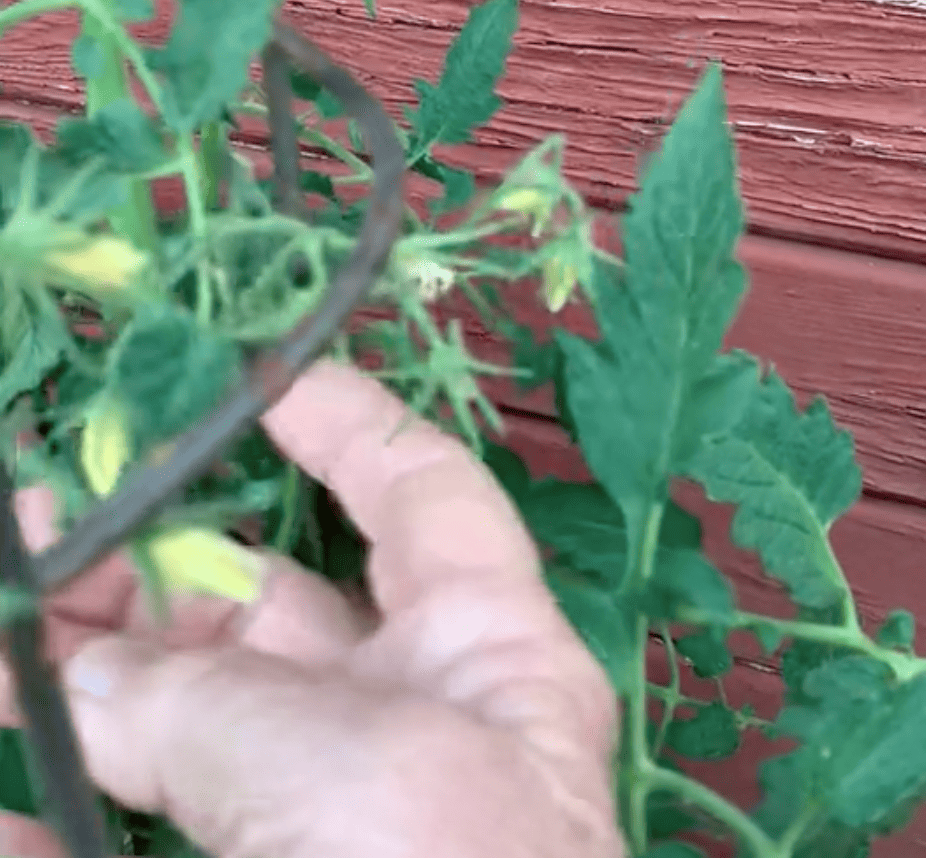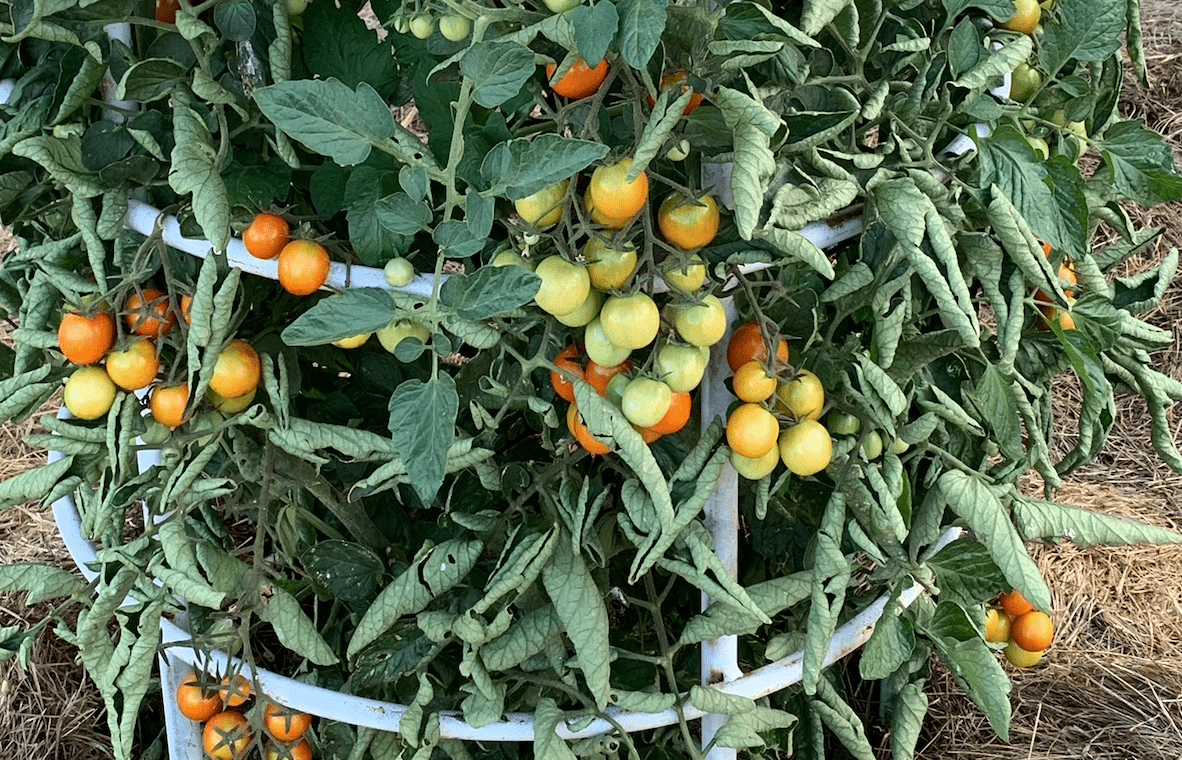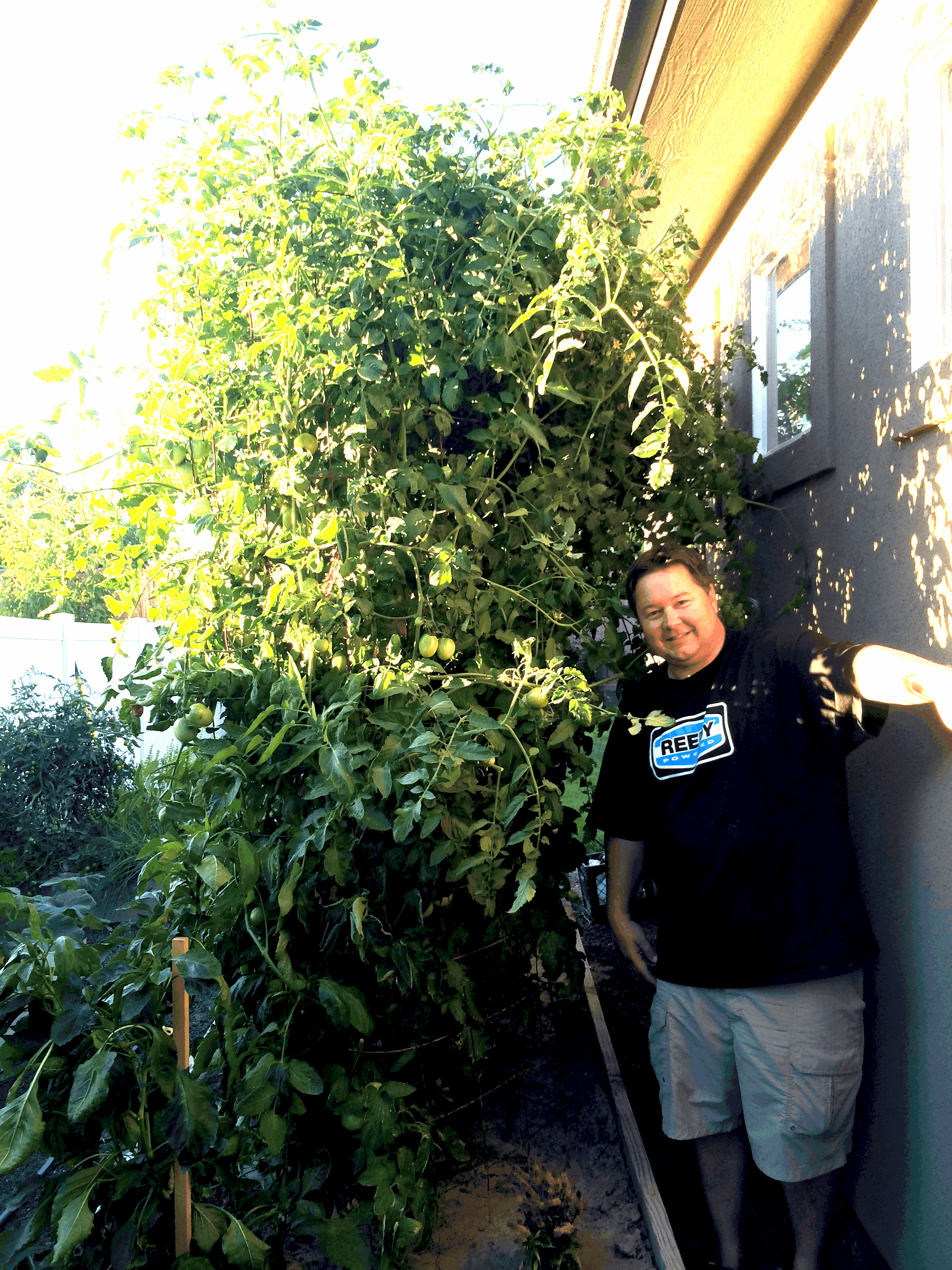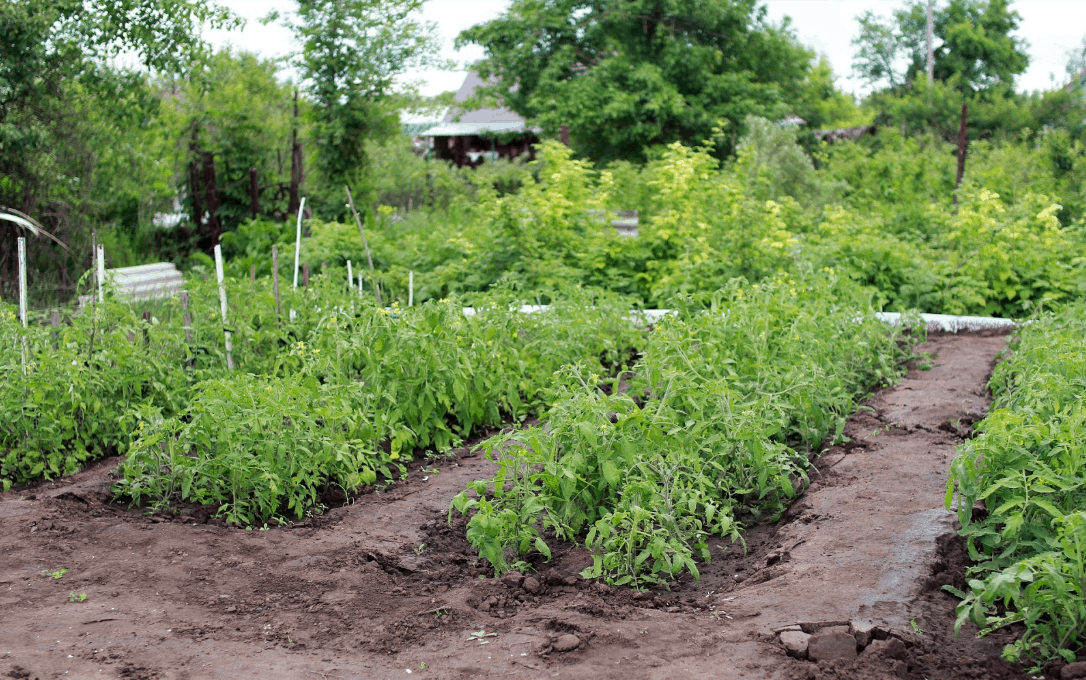Some gardeners swear by the use of powdered milk for their gardens, but what benefits could powdered milk possibly bring? Milk is high in calcium, which is a macronutrient that plants need. It also has fungicidal properties that can protect the plants. After we discuss some of the pros and cons of using milk for your tomatoes, you can decide if it is right for you.
As a Calcium Supplement
Milk “does a body good” by strengthening our bones, but we know that it is also good for plants. Calcium is one of the main components of plant cell walls, which help with the transportation of other plant nutrients. Calcium also helps to maintain the right chemical balance (pH) in the soil. Good garden soil should have a pH between 6.5-7.2. If it is too acidic, adding calcium can help restore the balance. A lack of calcium in the soil and in your plants can cause the growing tip to become pale and die or may lead to blossom end rot in your tomatoes.
To add calcium to the soil and help make it available to plants, sprinkle half a cup of powdered milk on top of the soil around your plant. You can start this at planting, and then continue the process every 2 weeks during the growing season.
As a Fungicide
Milk can also be used as a fungicide to help prevent things like powdery mildew, fruit rot, and leaf spot. Milk is most beneficial as a preventative measure for your tomatoes. Fungi are spread by spores, so covering the plant tissues with the fungicide will help prevent this spread. Regular milk, reconstituted powdered milk, or evaporated milk will all work. Scientists aren’t quite sure why milk works as a fungicide, but they believe that the proteins in milk act like an antiseptic when exposed to sunlight.
Applying milk as a fungicide is not a perfect science. The milk should be diluted to at least a 50/50 milk to water ratio and can be diluted much further. The water-milk mixture can be put into a spray bottle and sprayed on the leaves every 2-3 weeks until mid-summer when fungus is much less likely to develop. After applying the diluted milk, check back in an hour to make sure that the tomatoes have absorbed it. If there are still small puddles of milk on the leaves, gently wipe them off so that the moisture doesn’t encourage fungal growth. You can also apply milk directly to the soil, and the roots will gradually absorb it.
Problems With Using Powdered Milk
Clearly, powdered milk can be useful in the garden, but there are definitely some drawbacks. First, using any kind of milk, be it fresh or powdered, can cause a foul odor to develop as bacteria breaks down the milk fat. Too much milk can also cause stunted growth and wilt in your tomato plants. Lastly, adding milk may help with a few very specific things, but it is not a cure-all. It is just one piece in a bigger puzzle, and it can be a hassle to try to fit those pieces together perfectly.
The Secret to Great Tomatoes
When it comes down to it, you are probably better off just using a great natural tomato fertilizer that has a combination of all the important macro and micro-nutrients that your tomato plants need. This will mean less planning, purchasing, and work for you. Tomato Secret was recently voted the best tomato fertilizer on the market in a well-known blog. It is biologically correct and designed to feed the microbes in your soil and deliver direct nutrition to your plants. With Tomato Secret from Dr. JimZ, you will be able to grow the best tomatoes around.
Image Credit: https://pixabay.com/photos/dacha-vegetable-garden-tomatoes-2699713/



